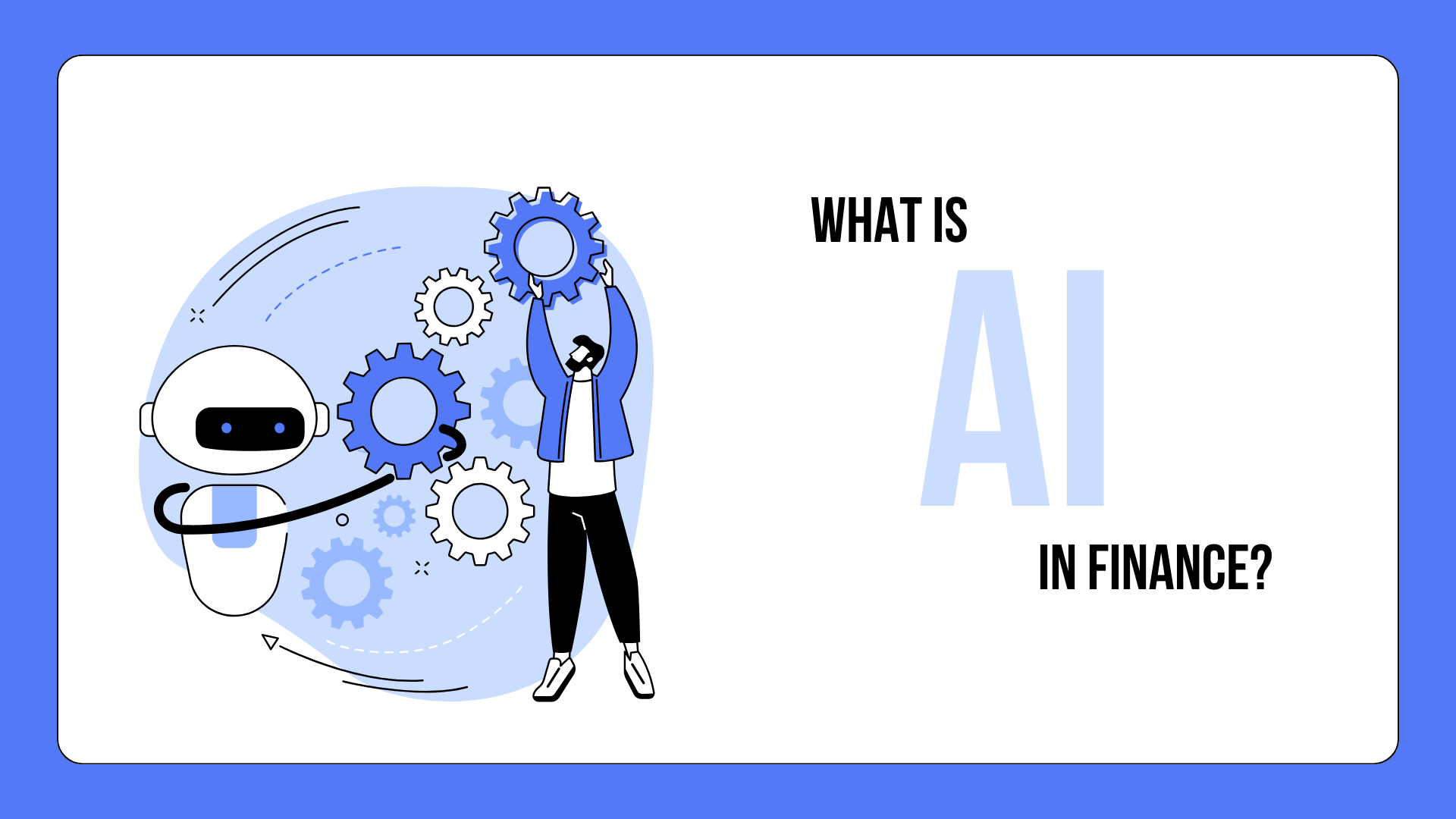Artificial Intelligence (AI) is no longer a thing of science fiction; it’s something we use every day—even in finance. From helping detect fraud to managing investments, Finance AI (using AI in financial services) is making tasks easier, faster, and safer.
In this article, we’ll explore the power of Finance AI, how it is used in the financial sector, and how it revolutionizes traditional processes.

So, What Is Artificial Intelligence (AI)?
Let’s break it down: you can understand that Artificial Intelligence is when machines or systems are designed to act like humans. They can "think" and "learn" to do tasks that require human effort.
For example, an AI system can analyze data, spot trends, and even make decisions. What makes AI special is that it doesn’t need constant supervision—it improves on its own by learning from experience.
Let's talk about Finance AI
Finance AI involves applying AI technologies like machine learning (ML) and advanced analytics to the financial sector. These technologies allow financial institutions to analyze massive datasets, automate workflows, and make smarter decisions.
Some things Finance AI helps with:
- Detecting Fraud: AI spots unusual activity in bank accounts to prevent theft.
- Improving Customer Service: AI predicts customers' needs and helps answer questions quickly.
- Making Smart Investments: AI analyzes stock market trends and helps investors make better decisions.
- Saving Time: AI automates repetitive tasks like reviewing invoices or checking account balances.
Why Is Finance AI Important?
Finance AI makes life easier for customers, employees, and businesses. Here are some reasons why it’s a game-changer:
- It’s Faster Than Humans
AI can process thousands of transactions or analyze massive amounts of data in seconds. For example, instead of a person manually checking every invoice, an AI system can scan and process them all in no time (you can try this by using Diaflow template 😁).
- It Reduces Errors
Humans can make mistakes, especially when dealing with complex financial tasks. AI systems are programmed to work accurately, reducing the risk of costly errors.
- It Saves Money
By automating processes, businesses need fewer resources to get the job done. This means they can focus more on serving customers or growing their business.
How AI Is Changing Finance
Making Tasks Simpler
In the past, financial systems relied on strict rules. For example, a system might need a person to program every single step. AI changes this by learning on its own.
Example: AI learns how to process invoices by recognizing patterns in the data, so it doesn’t need constant updates from humans.
Predicting the Future
AI doesn’t just look at what has happened—it predicts what might happen.
- Forecasting Finances: AI can predict how much money a business will make next month based on current trends.
- Spotting Risks Early: AI identifies potential problems like unpaid loans or sudden drops in cash flow before they become big issues.
Helping Businesses Grow
AI can handle large amounts of data, which makes it perfect for businesses looking to expand.
- Scaling Operations: As businesses grow, they can use AI to process more transactions without hiring extra staff.
- Adapting Quickly: AI systems can adjust to new tasks as businesses evolve.
Examples of Finance AI in Action

Automating Manual Processes
AI transforms mundane processes like accounts payable and receivable. For instance, Oracle’s ERP system automates invoice scanning and data entry, minimizing manual errors while improving fraud detection.
Accelerating Financial Close
AI reduces the time spent consolidating and reporting financial data. Oracle, for example, closes its financial books in just 10 days compared to industry norms of 20 days.
AI-Powered Digital Assistants
Digital assistants powered by AI simplify expense management and compliance. These tools can:
- Notify employees of policy breaches.
- Automatically generate and submit expense reports.
Algorithmic Trading and Portfolio Management
AI algorithms analyze market data in real-time, making decisions faster than human traders.
Benefits:
- Speed: Trades are executed in milliseconds.
- Risk Management: Predictive analytics ensure strategies adapt to market changes.
Why Should Beginners Care About Finance AI?
If you’ve ever worried about managing your money, getting scammed, or making the wrong investment, Finance AI is here to help. It makes managing finances simpler, safer, and smarter—even if you’re not an expert.
FAQs
What is Finance AI in simple terms?Finance AI is the use of smart machines to handle money-related tasks, like detecting fraud or managing investments, faster and more accurately than humans.
How does AI help with fraud detection?AI systems analyze transaction patterns and flag anything suspicious, like unusual spending or account access from different locations.
Can AI replace financial advisors?No, but it can assist them. While AI is great at analyzing data, human advisors are still needed for complex decision-making and personalized advice.
Is Finance AI safe to use?Yes, as long as businesses follow strong security measures to protect sensitive data.
How does AI help beginners manage their money?AI-powered apps can help track spending, suggest budgets, and even recommend investments based on your goals.
What’s the biggest advantage of Finance AI?It saves time and reduces errors, making financial tasks easier for both individuals and businesses.








